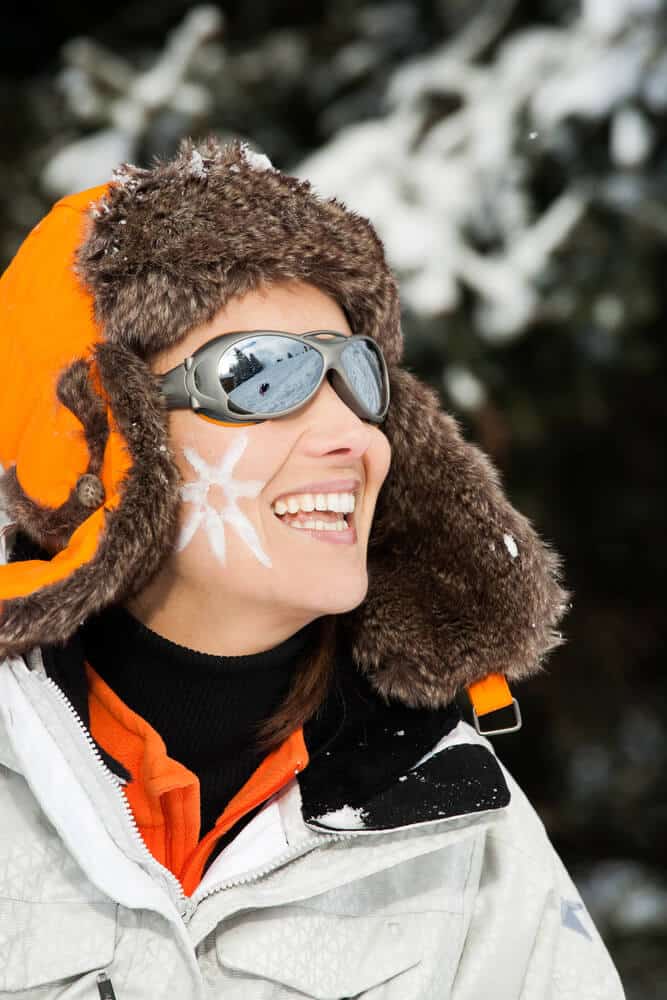
If you have felt yourself bombarded by these questions in the past, please know that you are not alone. Even as a dermatologist, I feel daunted by the sunscreen aisle at my local pharmacy. There are just so many options. I hope that these sunscreen tips I have learned throughout my personal life and dermatology career can help you understand and choose the sunscreen for you next time you’re in that aisle.
10 quintessential sunscreen tips and hints that everyone needs to know
1. Everyone needs sunscreen
No matter your background, gender, or age — as long as you are older than 6 months — you need sunscreen. If you are reading this article, you most likely are older than 6 months, so don’t forget to grab your sunscreen! The sun contains UV rays that can cause skin cancer. Today, about 1-in-5 Americans develop skin cancer in their lifetime. Sunscreen helps protect you from those harmful UV rays and reduce(s) the odds of cancer. In addition, it can help make your skin look more youthful by protecting against the UV rays that cause wrinkles and discoloration.
2. Look for “Broad-Spectrum” on the label
The sun contains two types of harmful rays that reach the earth: UVA and UVB. A broad-spectrum sunscreen will protect against both UVA and UVB rays. If a sunscreen is broad-spectrum, it will be specified on the label. Grab a bottle or container with “broad-spectrum” on it somewhere for maximum sun protection.
3. SPF 30 or higher
SPF stands for Sun Protection Factor. This number refers to the sunscreen’s ability to block the sun’s rays. A sunscreen of SPF 30 will block 97% of the sun’s rays. A higher SPF will block slightly more UV rays, but there is no sunscreen that will block 100% of the rays. Look for an SPF 30 at least, but know that grabbing an SPF 40 or 50 will give you a little bit more protection than the 30.
4. Reapply as needed
Sunscreen only lasts for about two hours. A higher SPF rating does not increase the duration of a sunscreen application, either. Reapply your sunscreen every two hours, or as needed if it washes off.
5. Wear it on cloudy days and in the winter
It is important to wear sunscreen all year long because the sun delivers harmful rays year-round. Yes, even in the winter and on cloudy days, the sun is hitting the ground with UVA and UVB rays. On cloudy days, you still get 80% of the harmful rays penetrating your skin. Snow, water, and sand actually reflect the sun’s rays back onto your skin and increase your chance of sunburns. If you are planning a ski trip to Tahoe or vacationing near the water, don’t forget your sunscreen!
6. Put enough on
Most people do not use enough sunscreen. You need about a shot glass amount to cover your body each time. Don’t forget to apply your sunscreen on your ears, the top of your head, and all around your neck.
7. Avoid sprays if possible
Spray sunscreens can seem easier to apply. However, the Food and Drug Administration (FDA) has not determined safety or effectiveness for spray sunscreens yet. With a spray sunscreen, it is hard to know if you have put on enough. Also, spray cans are bad for the environment. If you are using a spray sunscreen, do not inhale it or use it near heat, open flames, or while smoking. Alternatives to spray sunscreens include creams and lotions for dry skin and your face, gels for hairy areas such as the scalp or chest, and sticks for around the eyes.
8. Physical or chemical
Physical sunscreens work like a shield to deflect the sun. The active ingredients are zinc oxide and/or titanium dioxide. These sunscreens are best for sensitive skin. Chemical sunscreens work like a sponge and absorb the sun. These sunscreens are easier to rub into the skin. Both types are safe and effective, so feel free to find a sunscreen that you like to use and stick with it.
9. Like milk, sunscreen expires, too
Most sunscreens are good for three years. Some sunscreens have an expiration date, though. If the expiration date has passed, throw the sunscreen out. If there is no expiration date on your sunscreen, it should be effective for up to three years. If your sunscreen has changed color or consistency, trash it and get a new bottle.
10. Get yourself a dermatologist
A dermatologist like me can recommend the right sunscreen for you. It is my job to help you find a sunscreen that works well your skin type and has ingredients that you feel comfortable with.
Would you like to know more about sunscreen and skincare? Dial 510-646-8065 to schedule an appointment at NorCal Dermatology Group.

